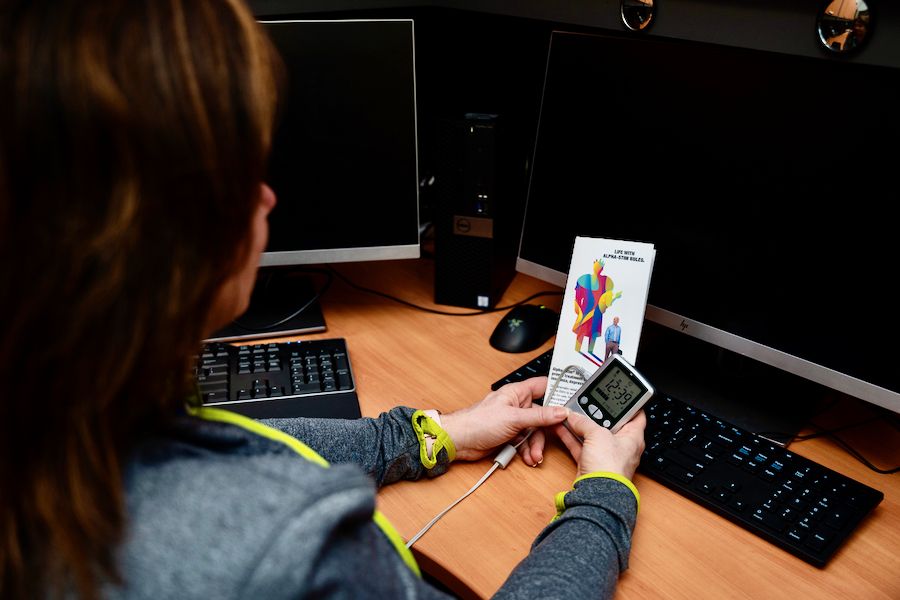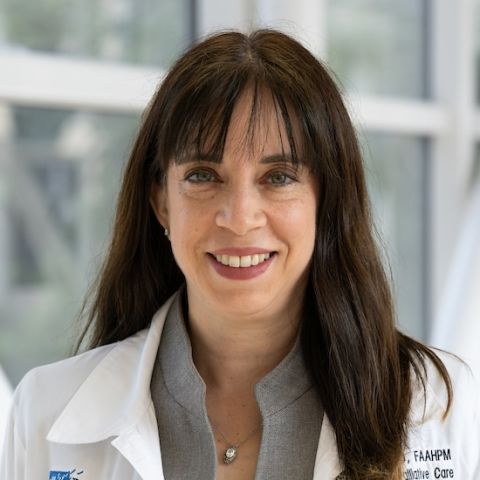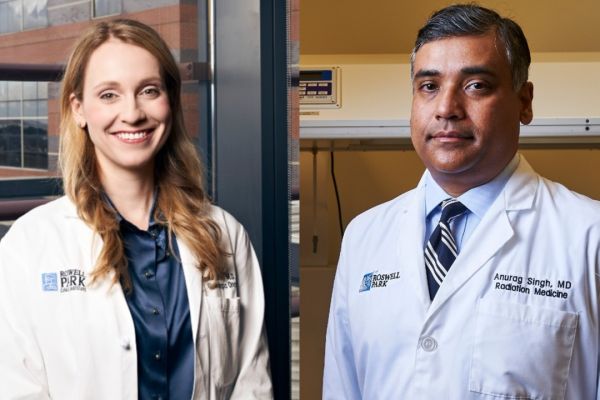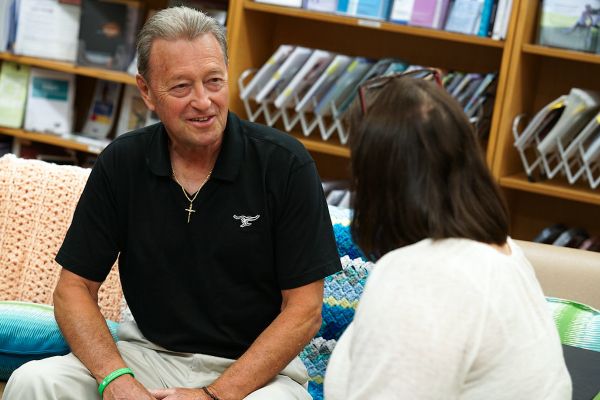Roswell Park Comprehensive Cancer Center is on top of the latest science, the newest technology and the best treatment options. But another big priority is ensuring quality of life for our patients and staff.
The Quality-of-Life Programs at Roswell Park benefit patients and staff, improving their day-to-day lives in the enduring fight against cancer. These programs are funded by grants made possible by generous donors who see the value in comfort and care right here and now in addition to the value of research that can shape the future.
Through a recent Quality-of-Life grant, Roswell Park purchased 35 devices — one for each inpatient and outpatient clinic — that will help to ease the anxiety, insomnia, depression and pain for patients and staff through something called cranial electrotherapy stimulation (CES).
The past few years have caused higher stress levels for most of us. After seeing the success of CES in the Palliative Care Clinic and Radiation Oncology, it was determined that this tool would be invaluable for Staff Resilience efforts. Leading that charge is Amy Case, MD, FAAHPM, Lee Foundation Endowed Chair of the Department of Palliative and Supportive Care.
“For staff resiliency, it’s an intervention that shows our staff that we care,” Dr. Case says, adding it was much like the practice of making sure your own oxygen mask is on in an airplane before assisting someone else. “You can’t take care of sick people if you don’t first make sure you’re taking care of yourself. That’s a big passion of mine. With COVID and things being stressful and short-staffed, the burnout has been ever greater.”
What is cranial electrotherapy stimulation?
The science for these CES devices has been around since the 1980s. This technology uses a very small and safe amount of electricity to bring the user’s brainwaves back into balance. After a 20-minute session, many people say they feel refreshed, focused and calm. The sessions can help relieve tension, stress, and can contribute to better sleep.
Relief for anxiety and pain can come almost instantly when using CES treatment. Help from insomnia might take a few repeated sessions while some relief from depression can take several weeks of repeated use, depending on other simultaneous treatment.
“In our palliative population, we look at multiple symptoms, including pain, anxiety, depression and insomnia,” says Dr. Case. “You have a treatment that manages anxiety, depression, insomnia and chronic pain and it’s something that you just put on for 20 minutes a day that doesn’t have any side effects and it’s not the same as taking a pill that has drug interactions and adverse effects.”
Never miss another Cancer Talk blog!
Sign up to receive our monthly Cancer Talk e-newsletter.
Sign up!What we’re seeing
“As a caregiver, there is a great deal of mental strain we put on ourselves to be sure we are giving our patients our best. The pandemic has added a whole new level to that strain. I was skeptical about [the device] at first, but I was sold almost immediately with my first experience. This device gives my body the reset it needs so I can continue to give my best to those that need it most,” says Lem Mogavero, RN BSN CMSRN, Clinical Nurse Manager, 6 East.
This new tool has made a noticeable impact on the staff members who are caring for our patients. It is not yet something that is generally covered by insurance, so owning one personally can be prohibitively expensive. Providing this care for our staff creates space for them to recharge and practice safe self-care.
“If we’re feeling resilient, if we’re feeling better about our work environment, then we can be more compassionate with our patients,” says Dr. Case.
Doctors also have given more patients an opportunity to try CES if they’re anxious about their treatment. Whether nervous about radiation or dealing with anxiety before chemotherapy, CES has been a tool to help ease these patients' minds and help them finding their footing to keep moving forward with their treatment.
After one patient tried the device to get through her chemotherapy, she was so moved by its impact she reached out to provide funding so 35 more of these CES devices could be purchased for patient use.
It takes all of us to care
The steadfast generosity of Roswell Park donors moves programs like this one forward. When we continue to care for the humanity in one another, the wellness of our neighbors who are in this fight against cancer, everyone wins.




